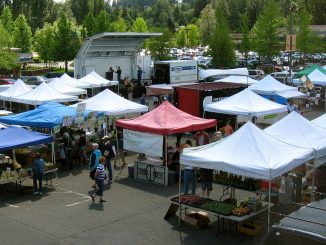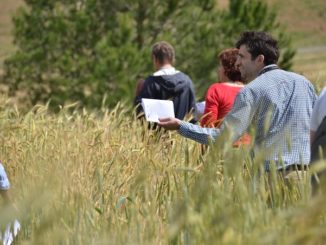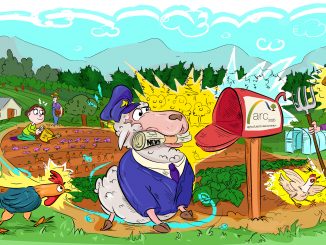Over the last decade, the French Terre de Liens movement has provided long-term support to local communities wishing to preserve farmlands as a scare ressource. This year Terre de Liens’s request to become a registered charity, and thus foundation, has been approved by the French Conseil d’Etat. This marks a significant step towards farmland sharing: today Terre de Liens owns 89 farms on 2,000 hectares, all dedicated to local agricultural projects, mainly organic ones.
 Whether it is to preserve a water catchment basin, limit urban sprawl, protect biodiversity, maintain rural vitality, or relocate food systems, a local community may decide to protect agricultural areas and to promote organic farming for various reasons. It can regulate land use or employ financial incentives, but the most effective means of preservation is through land management land. How can this be done? How can property management be ensured? How could protection be continued in the long term? Terre de Liens foundation’s work answers precisely these questions.
Whether it is to preserve a water catchment basin, limit urban sprawl, protect biodiversity, maintain rural vitality, or relocate food systems, a local community may decide to protect agricultural areas and to promote organic farming for various reasons. It can regulate land use or employ financial incentives, but the most effective means of preservation is through land management land. How can this be done? How can property management be ensured? How could protection be continued in the long term? Terre de Liens foundation’s work answers precisely these questions.
The foundation’s mission is to hold agricultural heritage purchased or received by gift or bequest, to manage it selflessly with the only objective of perpetuating the agricultural use of the land, and to take care of environmental value and encourage locality, explains its chairman Jean Le Monnier in a press release. By legal statute, this structure thus provides perenial solutions to protect farmlands beyond local elections and changes, and is as such adapted to the long-term development of territories while discharging the local community of long-term management.
Without having to create a new structure, Terre de Liens foundation will result in innovative arrangements that bring together diverse stakeholders (local communities, water agencies, protective natural areas etc.) around a project area, while combining public private money (corporate sponsorship) and citizen money (gifts and savings), these arrangements can take various forms, such as in-kind contribution of a community farmholding, or investment grants for the purchase of a targeted farm investment envelope allocated to an area.
Partnership between a local community and Terre de Liens is thus secured and sustainability of the project ensured, first by ethics and the subject of the movement of Terre de Liens and second by the operation and the legal framework foundation: 1) opportunity for the local community to set conditions for his donation or grant its investment; 2) preservation of farmland use thanks to rural leases including environmental criterias with farmers and 3) speculation-free farmland that will never be sold or broken up.
Beyond the foundation, Terre de Liens movement is structured around a national association, a real estate company and 19 regional associations. It has been operating with concerned authorities for several years already, to preserve agricultural land and develop organic farming.
The main types of intervention are: encouraging the emergence of agricultural projects in a territory including awareness and training of elected officials; conducting land diagnostics and identification of land available for new farmers; advising local communities in their land management efforts; searching for and selecting new farmer candidates; establishing environmental tenancies and operational tools for the farmland purchasing.
The European working group on ‘Access to Land for Community Connected Farming’ has conducted an initial mapping of experiences accross Europe. See : https://maps.google.com/maps/ms?ie=UTF8&hl=fr&msa=0&msid=107996440332808481570.000490b1b6b8f68f0c7de&ll=51.944265,6.855469&spn=21.461647,54.140625&z=4





